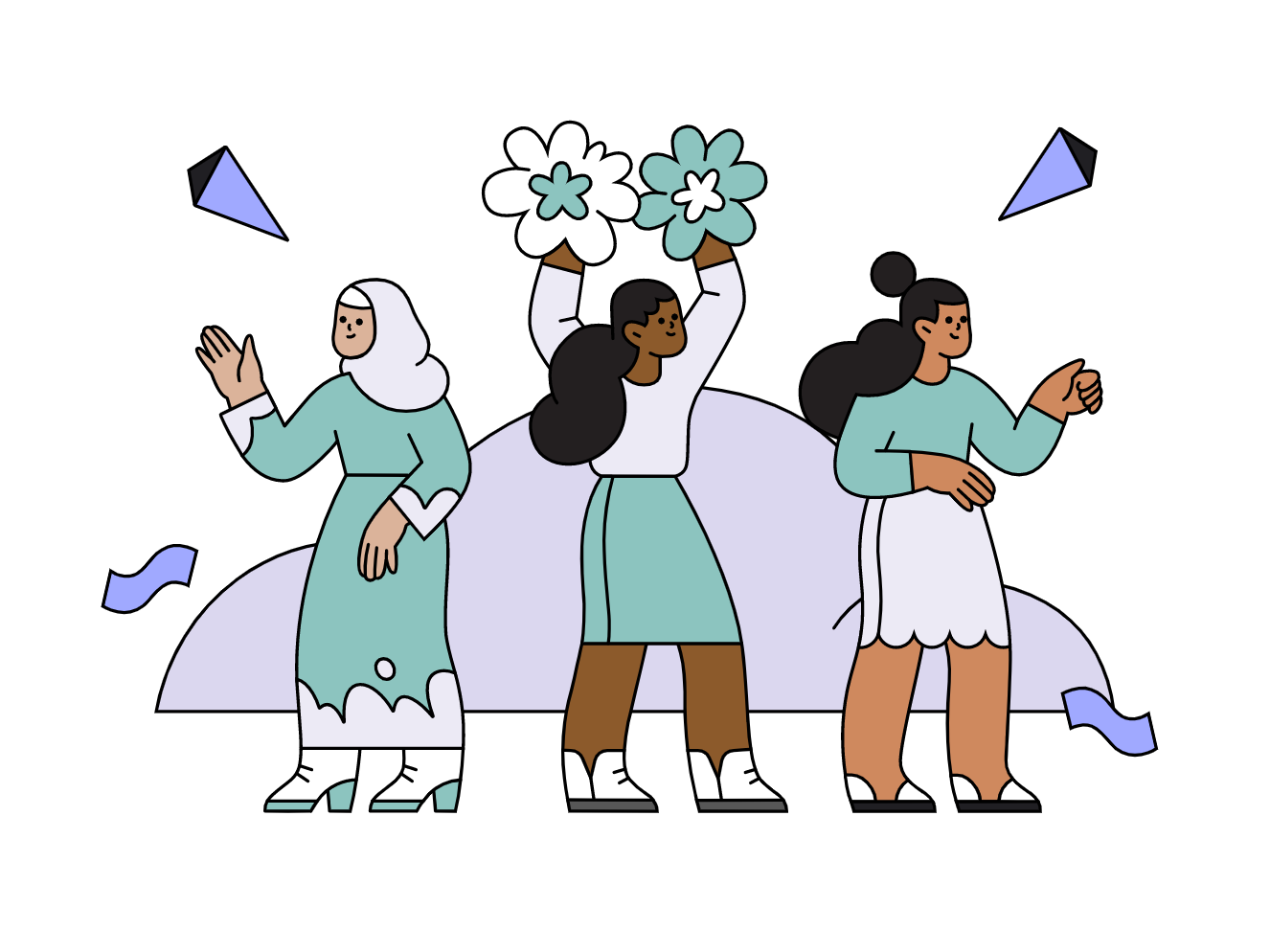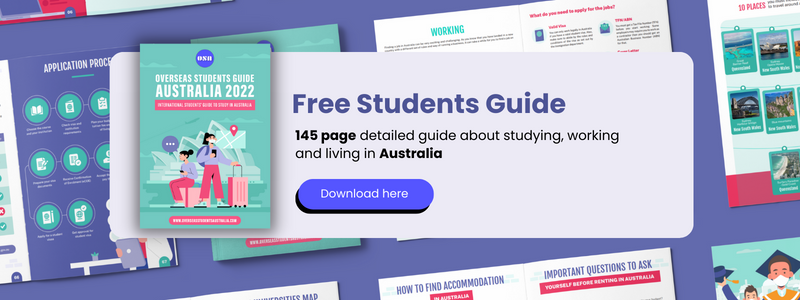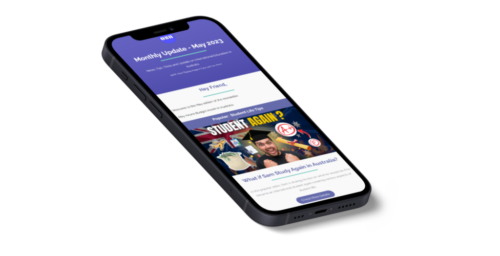
LIVE IN AUSTRALIA GUIDE
Your Life in Australia Guide
Safe, friendly and welcoming, Australia is a land of opportunities for wonderful experiences
What's in this Lifestyle guide?
👋 Life in Australia for International Students
Coming to the land down under for studying and wondering how the Australian lifestyle is and what is the cost of living and are Australians easy to mingle with?
This guide will give you detailed information on everything you need to know about living in Australia as an international student.
Reasons to Live in Australia
⛳ Quality Life
Australia ranks 2nd country in the OECD Quality of Life Index just behind Norway.
👩 Safe Country
Australia has one of the lowest crime rates in the world making it one of the safest countries.
💉 Strong Healthcare
Australia’s public healthcare system also as Medicare is free and provides good care to the residents.
💪 Multicultural
Around 1/4th of Australian population is born overseas making it one of the most multicultural country.
Weather & Time zones in Australia
⏰ Current Time
🕜 Time Zones in Australia
Due to its huge size, Australia has been divided into three main time zones. In the warmer months between October to March, there is one hour of daylight savings for certain states and territories (NSW, VIC, TAS, SA, ACT) which means you will need to advance one hour forward on your clocks.
⛅ Weather in Australia
Australia is a huge country, so the climate varies a lot from one region to the other. If you are coming from Northern hemisphere, you will see the seasons are opposite in Australia. You can choose a city to live in Australia based on your weather preferences.
🌞 Current Weather
🤑 Common Student Question How is Life in Australia for International Students?
“Interesting” is the word to answer that question. Life in Australia has many aspects and while some are more fun, others are challenging as well. As students usually live on their own they have to manage every aspect of the life themselves. But don’t underestimate the learnings from the international student life.
Cities to Live in Australia
🌆 Australian Cities
There are plenty of cities to choose from when deciding to study in Australia. Australia has many word class cities and some very charming regional cities as well where you can study. You can learn more about cities in Australia below.
🏛 Popular Student Cities
These are some of the popular cities among international students to study and live in Australia.
Cost of Living in Australia
💵 Cost of Living in Australia
The average weekly living cost for International students can vary from one city to other and your lifestyle factors. Study in Australia provides a basic guideline for international students about the average cost of living.
Here is a higher an lower end cost of living for international students in Australia. Amounts are expressed in Australian dollars ($AUD).
🏠 Rent
$90 to $440
🍔 Food
$140 to $280
🚌 Transport
$30 to $60
🔌 Utilities
$25 to $50
🎉 Others
$80 to $150
💵 Total
$365 to $980
Australian Culture
💼 Australian Culture and Society
Australia prides itself as one of the most diverse and welcoming cultures in the world with 26% of Australians born overseas. Here are some guidelines that you need to keep in mind while settling in Australian culture.
🤑 Common Student Question Is Australia a racist country toward migrants?
While we can’t deny ad-hoc incidents of racism towards migrants, generally speaking, most of Australians don’t accept any discrimination, racism and they are very open on their views about it. There are strict laws in Australia protecting the human rights regardless of their visa status.
Accommodation Options in Australia
💁 Homestay
With homestay, you will live with a family in their home. Homestay can be a good option for younger students as you will have all the comforts of an established home, often with meals and cleaning included.
🤝 Student Apartments
Student apartments usually offers facilities like 24 hours onsite support access, bills, furnished living spaces, study areas and social events, pretty much everything you need at one fixed price.
🚪 Short Term
Temporary housing which may be offered through your institution while you get settled in your early stages here.
🏢 Private Rentals
You can rent or lease a property by yourself or with friends. This can be done through a real estate agent or privately. When renting a property you will need to pay a security deposit or ‘bond’ (which is usually four weeks rent), as well as rent in advance (also usually four weeks).
🌇 On Campus
Most universities have comfortable and furnished apartment-style living on campus or close by, sometimes with cleaning and meals included.
🏠 How to find accommodation in Australia?
Here are few steps to find an accommodation in Australia
Step 1 –Book temporary accommodation on airbnb or hostels website or uni accommodation before
arriving in Australia
Step 2 – Start looking for long term accommodation after arriving in Australia
Step 3 – Decide on your budget, lifestyle and type of accommodation that might suit
Step 4 – Start researching on various websites depending on your individual needs
Step 5 – Always Inspect the property personally. Don’t rely on online photos.
Step 6 – If sharing, meet the people living in the property to seek compatibility
Step 7 – Read the rental agreement carefully and sign up for a lease
❓ Questions to yourself ask before renting
These are some of the question you might consider to ask yourself before renting any accommodation in Australia:
Other Important things to know
⚠ How to stay safe in Australia
Australia is usually a very safe and welcoming country but like in any country it is important to use some common sense to stay safe. Here are few tips for how to stay safe in Australia
- Try to avoid being out alone at night
- Plan your trip to back home. Pre-arrange taxi or your transport.
- Travel in a group or with friends
- Keep your bag and belonging close to you
- Don’t show off your expensive phones or valuables
- Don’t carry large amount of money with you
- If possible, leave your valuables at home
- Always use pedestrian walkways and stay in well lit areas
- Avoid too dark and secluded areas like parks and alleys
Emergency
If you face any emergency or life threatening situation, you should take the following steps:
- Call 000 from any phone or mobile – it is a free call even from a mobile phone.
- Operator will ask you which of the following services you need: Police, Fire or Ambulance.
- Tell the emergency service you need to the operator.
- If you don’t speak English, just tell the operator your language and wait for instructions.
- Answer the questions the operator asks.
- Operator will inform the emergency services and guide you though the steps you will need to take before the emergency service arrive at the scene.
🛬 Arriving in Australia
When coming to Australia for the first time, you need to know some important information in relation to the baggage and customs.
Usually, airlines will have a baggage requirement of 23 kg luggage and 7 kg of a handbag. But some airlines allow for extra luggage if you are a student.
Australian customs and border protection are very strict in regards to what you can bring and what you can’t bring. So make sure not to bring any item that is not allowed in Australia to avoid penalties.
Most of the daily needs products are easily available in Australia, so don’t push yourself to bring everything.
It is illegal to carry drugs including marijuana, cannabis, heroin, cocaine, and amphetamines in and out of Australia.
Also, do not bring any fresh fruit and vegetables, meat, poultry, pork, eggs, dairy products, live plants or seeds as they might pose a threat to local agriculture and farms.
Before your flight lands in Australia, you will need to complete an incoming passenger card which will require you to declare the items you are bringing in your baggage.
If you are unsure about certain items, it is a good idea to declare them.
After landing and reaching your new home, your first few days in Australia will be interesting and sometimes overwhelming as you learn and adapt to the Australian norms and culture.
So, don’t try to put much pressure on yourself, relax and enjoy your time.
🏛 How to stay in Australia?
To legally stay in Australia, you will need a visa. There are different types of visa available to live (temporarily or permanently) in Australia. Some of them are:
- Student Visa (subclass 500)
- Visitor Visa (subclass 600)
- Work and Holiday Visa (subclass 462)
- Temporary Work (Short Stay Specialist) visa (subclass 400)
- Temporary Graduate Visa (subclass 485)
- Skilled Independent Visa (subclass 189)
- Employer Nomination Scheme (subclass 186)
- Skilled Employer Sponsored Regional
Visa (subclass 494) - Skilled Work Regional Visa (subclass 491)
🖼 Places to travel around Australia
10 places you must include in your bucket list to travel around Australia
- Great Barrier Reef – Queensland
- Sydney Opera House – New South Wales
- Uluru – Kata Tjuta National Park – Northern Territory
- Great Ocean Road – Victoria
- Sydney Harbour bridge – New South Wales
- Blue mountains – New South Wales
- Whitsundays – Queensland
- Rottnest island – Western Australia
- Surfers Paradise – Queensland
- Kangaroo Island – South Australia


